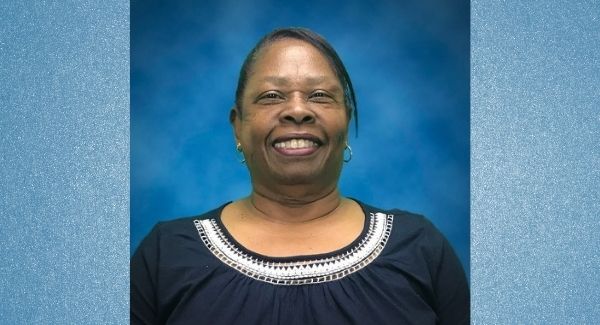Beverly Knighten ‘97, ‘01 said her calling to help others came at a very early age during a visit she and her grandmother made to a relative’s house. The relative was blind and Knighten was asked to help prepare her food and to help her relative eat.
“That was it. That’s when I knew I was meant to help people,” said Knighten. “My grandmother struggled but she never turned anyone away. She made people feel welcome no matter where they came from and was always there to help people. She was such a big part of my ‘why’, the reason I wanted to help people.”
Finding a beginning
After high school, Knighten attended Wichita State University but didn’t feel connected there. She said the fit just wasn’t right. After some research, she found Newman University and was attracted to the smaller classrooms and the overall atmosphere.
She decided to apply to the addiction counseling program and was accepted. She earned her Bachelor of Science in Sociology with an emphasis in addiction counseling in 1997. She began working in the addiction field, during which time, the university reached out to her with news of a new Master of Social Work (MSW) program, asking if she would be interested.
She was very intrigued with the idea of continuing her higher education and earning a master’s degree so she applied. In 2001, Knighten became a Newman MSW graduate.
“It was nice to be in the beginning of something and watch it flourish. I met a lot of counselors and doctorate graduates — it was very rewarding,” said Knighten. “During one of my practicums, I worked for a homeless shelter working with battered women. I really liked talking with them, learning their backgrounds, struggles and learning how much resilience and strength they carried. Sometimes when you are going through troubles, you forget how much inner strength you have.”
A new passion had entered Knighten’s heart.
Following the need
After graduating with her MSW, she jumped into the mental health care field. During her 21-year career so far, she has worked with the homeless population all over the country.

She started with Comcare of Sedgwick County, working in their homeless program as a director. Then found herself at the Robert J. Dole VA Medical Center. But she didn’t stop there.
“I found myself continuing with the homeless population. I worked in Fayetteville, Arkansas, as a community residential care coordinator and developed the medical care foster program there. Then I was in Augusta, Georgia, where I helped start their HUD program, which led me to Athens, Georgia helping to start the HUD program there.”
Knighten ended her VA career in Long Beach, California, working with the community and a VA partnership to end homelessness.
She currently lives in a rural Oklahoma town about two hours south of Tulsa. Her employer, Caring Hands Healthcare Centers, serves community members through medical, dental, nutritional and behavioral health services.
Knighten spends her days providing counseling to the underserved and working with the school district to make sure the children are connected and have the support they need.
Traveling throughout her career was a bonus of living out her passion for helping others and being a part of new initiatives.
“I like starting new programs, new initiatives. If I felt that (a new program) was something I would like to do, I would apply. I never picked the place based on the ability to travel, it just seemed to always work out that way. I get to meet new people and learn new things. To get out and understand how people thrive, how they have so many obstacles but they always seem to end up on top. I truly like to be on the forefront of that and watching things happen. It’s very rewarding.”
Seeing the purpose
Knighten said the social work field has always been rewarding and exciting, but watching it change and grow over the years has been equally rewarding.
When people thought of a social worker, she said, they would think that person must work for the state or in foster care. But it’s become so much more through the years and communities are really starting to leverage the services available.
“Where there was absence before, there is a presence now. Social workers are in schools, police departments and the criminal justice system. They are out there making a real difference. We are part of communities large and small. We are out there training, helping people to understand how to connect to others who don’t look like them or might have been raised differently. Social workers can be a powerful force in the lives of our community members. We are really and truly a part of something great.”
Knighten said for individuals who want to go into the world and really make a difference, social work might be for them.
She likes that there isn’t a proverbial ceiling in her field. Social workers are able to work in many diverse environments and workplaces. Where there is a passion, she said, one can find it in the social work field. Corporations, nonprofits and state employment all have a need for social workers.
“It’s not about the money,” said Knighten. “It’s about helping people realize what their dreams and goals are. It’s about being there to help them, to coach and mentor to them. You never know how much you can impact somebody’s life.
“I thought that being a social worker, I would want to do case management or be a part of someone’s life from beginning to end to make sure they’re doing well, but I really think that just being a part of it is OK, too. I may not be there to the end, but in the meantime, I can help identify what people need and help them start a plan to get there and succeed.”


